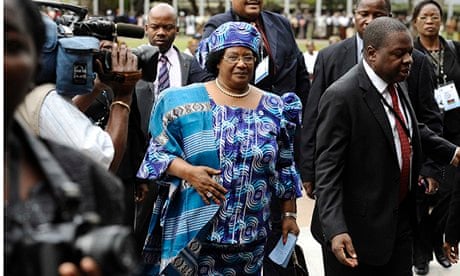Tears may dry in seconds. Bruises may disappear in days – and scars might eventually fade. But of all the devastating consequences of violence against women and girls, there is one lasting impact that cannot be hidden underneath clothing or concealed behind a forced smile. In sub-Saharan Africa, every minute of every day a woman becomes infected with HIV, adding to the tragic and persistent spread of the HIV/Aids epidemic.
They are someone's mother, wife, daughter or sister – and often they are also someone's battered and abused victim. Rape, child abuse and domestic violence are all driving HIV on the continent. Rapists care little for condoms, which means every victim faces a vastly higher risk of HIV infection. African women abused by their partner are 1.5 times more likely to acquire HIV; women who have been sexually abused in childhood are more prone to the virus; one study revealed that child abuse leads to a 66% higher chance of being infected.
These brutal statistics, coupled with the poverty and disempowerment faced by most African women, might give a clue or explanation as to why there are twice as many young African women living with HIV than young men. There is a direct link between violence and HIV. Women and girls living with HIV are more prone to abuse, due to the stigma of the virus. A gruesome vicious cycle is formed, with violence feeding the epidemic, which in turn feeds the brutality.
Malawi is a case in point. We have both visited this small African country and have witnessed women's extraordinary courage, as well as their darkest despair: 61% of HIV-positive Malawians are women; 41% of Malawian women experience physical or sexual violence. Two-thirds of girls experience child abuse, with three-quarters of these incidents taking place in schools – the very place where they should be safe and protected from the evils of this world. Most pupils suffer in silence, as speaking out is deemed to be unacceptable. Fear, stigma and the threat of retribution keeps everything closeted, while the issue remains unacknowledged.
Confronted with this abysmal situation, it is easy to feel helpless; to think that there's nothing we can do. Global efforts to prevent new infections, such as by condom provision and education programmes have helped lead to dramatic drops in HIV rates across the world and more access to anti-retroviral drugs is helping millions live normal lives. But there is not an endless supply of money to treat the ever increasing numbers of women – and men – who live with HIV.
If we are to reverse the soaring rates of infection, we have to acknowledge and break the link with violence. A solely medical approach will not work by itself. The root causes, including social behaviour and abusive attitudes towards women and girls, have been ignored for far too long and urgently need to be addressed.
Malawi, one of the worst-affected countries, has recognised this. Joyce Banda, the president, has publicly acknowledged the impact that domestic violence had on her own life. By doing so, she is helping to break the taboo and bring the issue into the open. The government has also drastically improved the way it reports and responds to violence against women and girls in recent years, while its efforts to tackle HIV have led to a significant drop in the rate of infection.
Britain is supporting these efforts. As well as supporting HIV prevention and treatment in Malawi, the UK has funded a police-led victim support unit to help women who have been abused. We also support community work to bring HIV sufferers together, reducing the social stigma associated with the disease. We need other African countries, together with western donors and NGOs, to build on this work.
Too many governments turn a blind eye, while the lives of their women and girls are shattered. We are not fooled by the carefully placed clothing or the forced smile. We refuse to look the other way while millions of women and girls suffer needlessly. It is time to break the cycle. We must end the violence if we are to beat HIV once and for all.
Lynne Featherstone is parliamentary under-secretary of state at the Department for International Development. Annie Lennox is an HIV/Aids campaigner and Unaids ambassador.
